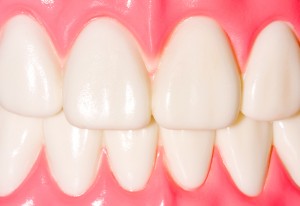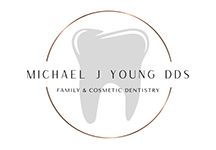 Lafayette Dentists Explains Teeth’s Defenses
Lafayette Dentists Explains Teeth’s Defenses
Given the wide range of dental hygiene products, dental restoration techniques, and prevalence of dental diseases, you might think that human were teeth were utterly defenseless against the afflictions that plague them. If so, then you might also be surprised to learn that your teeth are actually protected by the strongest substance your body produces. With proper care and maintenance, tooth enamel is a highly effective barrier against bacteria that seek to infect healthy teeth. Unfortunately, proper care and maintenance are not guaranteed, and inadequate dental hygiene often leads to compromised tooth enamel, followed closely by tooth decay. With a little help from your Lafayette dentist, Dr. Michael J. Young, you can fortify your teeth’s natural defenses and significantly reduce your risk of developing a tooth infection.
The Uniqueness of Teeth
Contrary to popular belief, your teeth are not the same as your bones, although the two substances do share a number of striking similarities. For instance, bone and teeth are both largely comprised of calcium and phosphate. However, the proteins that shape your tooth enamel stretch these mineral crystals farther, making microscopic strands that are thousands of times longer and more resilient than those of your bones. Another vital difference is that healthy bone will regenerate/repair itself when broken or damaged, which is why it’s important to set a broken bone properly for it to heal correctly. Your teeth, however, do not contain the living cells necessary for regeneration. If your enamel or tooth structure is compromised, the damage will continue to grow worse until you take the necessary steps to repair it.
Breaking Down Barriers
An interesting phenomenon is that, while enamel cannot repair itself when damaged, it can regain its strength when weakened. When you eat and drink, oral bacteria consume sugar and starches from your meals, turning them into acid that attacks enamel and depletes essential minerals from your teeth (demineralization). Enamel maintains its mineral structure through minerals supplied by teeth (remineralization); therefore, acid attacks deprive enamel of its source of strength, inhibiting its ability to repel harmful bacteria from your tooth’s softer main structure. If your brushing and flossing routine is ineffective, or if you neglect your regular dental checkups and cleanings, then oral bacteria can flourish, creating more acid every time you eat and increasing your risk of enamel erosion and tooth decay.
About Michael J. Young, DDS:
Dr. Young opened his modern dental practice in 2005, and enjoys helping patients improve and restore their smiles through expert cosmetic and restorative dentistry. To schedule your consultation with Michael J. Young, DDS, call our office today at (337) 237-6453.
